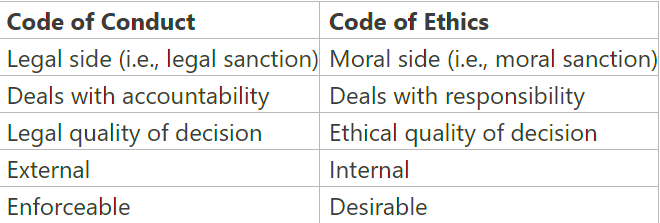Context
The social media platform X (formerly Twitter) withheld four posts by the political parties on takedown requests by the Election Commission of India (EC).
X has Removed posts for violating the Model Code of Conduct (MCC)
Violation of MCC: According to the EC, the posts in question violated the Model Code of Conduct (MCC), and that X had a responsibility to remove these posts as it had agreed to the ‘Voluntary Code of Ethics for social media platforms’.
- Rules cited by EC for Orders to Remove Posts: The EC cited provisions of the MCC against criticism of political parties and candidates based on unverified allegations, and criticism of their private lives.
- The EC also cited its March 1 advisory, in which it had warned political parties to follow the MCC and maintain decorum during the Lok Sabha campaign.
Model Code of Conduct (MCC):
- It is a set of rules put in force by the EC to guarantee free and fair elections in the country.
- The MCC is effective as soon as the poll dates are announced.
|
Emergence of Voluntary Code of Ethics for Social Media Platforms
- Amendments to RPA,1951: In January 2019, a committee led by Deputy Election Commissioner Umesh Sinha proposed amendments to the Representation of People Act (RPA), 1951.
- These amendments aimed to cover social media posts during the 48-hour period before polling, during which traditional campaigning is prohibited.
- RPA 1951 governs the conduct of Lok Sabha and state assembly elections.
Enroll now for UPSC Online Course
Representation of People Act (RPA), 1951: It contains provisions related to:
- Methodology for the conduct of elections of the Houses of Parliament and to the House or Houses of the Legislature of each State.
- The qualifications and disqualifications for membership of those Houses.
- The corrupt practices and other offenses at or in connection with such elections.
- The decision on doubts and disputes arising out of or in connection with elections.
|
- Presentation of Code of Ethics to the EC: In March 2019, the Internet and Mobile Association of India, in collaboration with social media platforms, presented a code of ethics to the Election Commission.
- This code, initially introduced after the Lok Sabha elections, was subsequently extended to all future elections.
Voluntary Code of Ethics
- About: Under this, the social media platforms will voluntarily undertake information, education and communication campaigns to spread awareness about elections, including about electoral laws.
- Provision for Grievance Redressal: The social media platforms created a high-priority dedicated grievance redressal channel for taking action on the cases reported by the EC.
- Timely Processing of Legal Orders by the EC: Valid legal orders of the EC would be acknowledged and/or processed within three hours for violations reported under Section 126 of the RPA, 1951, and other valid legal requests would be acted upon “expeditiously”.
- Section 126 refers to the curbs on campaigning in the 48 hours preceding polling.
- During the 2019 Lok Sabha elections, around 900 posts were taken down by the social media platforms upon the EC’s request.
Code of Ethics

- Core Ethical Values: These are a set of guidelines containing core ethical values, principles and ideals of the organization.
- Values as Guidelines for Decision-Making: These are referred to as values, which behave like the Constitution with general principles to guide behaviour, outlining a set of principles that affect decision-making.
- It would include the principles of integrity, impartiality, commitment to public service, accountability, devotion to duty, exemplary behaviour etc.
- Minimum Conduct Standards: It defines the minimum requirements for conduct and behavioural expectations instead of specific activities.
- Distinguish Between Right and Wrong: Code of ethics helps members in understanding what is right or wrong and these codes are disclosed publicly.
Also Read: Ensuring Transparency and Autonomy In the Election Commission of India
![]() 18 Apr 2024
18 Apr 2024
